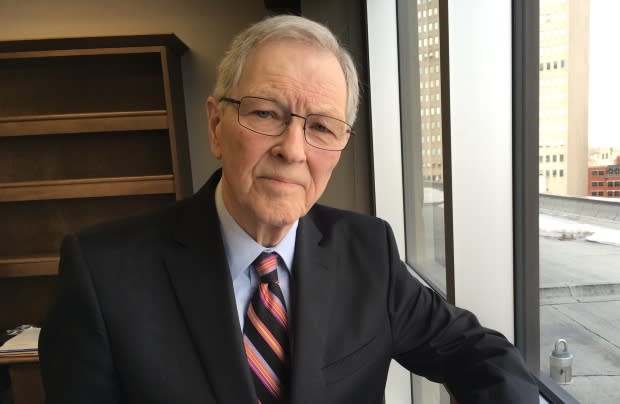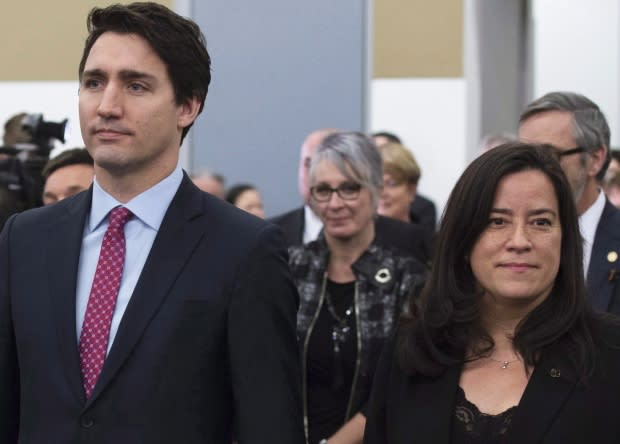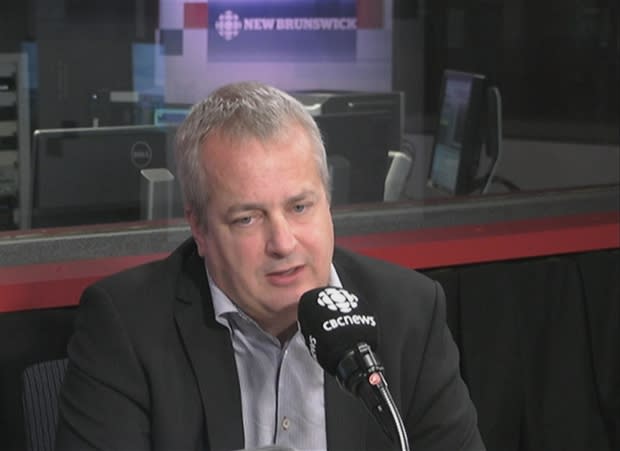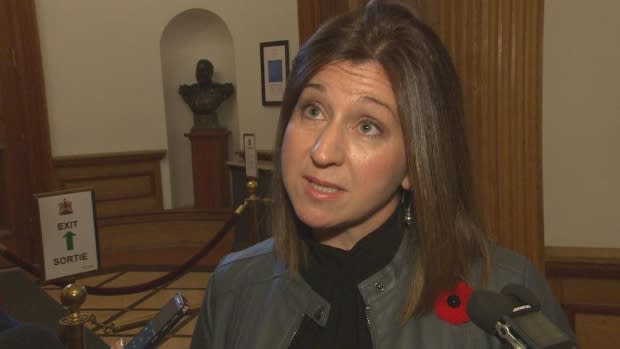Split roles of attorney general and justice minister, retiring judge says
A recently retired senior judge in New Brunswick says the roles of justice minister and attorney general should not be held by the same person.
And David Smith also says he likes the British tradition of an attorney general who doesn't attend cabinet meetings.
Smith retired last week as the chief justice of the Court of Queen's Bench.
In a retirement interview with CBC News, he said he agrees with growing calls to divide the roles so that the attorney general, whose office oversees criminal prosecutions, is free of interference by fellow politicians.
"I think it avoids any potential conflicts," he said.
The issue flared up in Ottawa after allegations by former attorney general Jody Wilson-Raybould that she was pressured by officials to negotiate a settlement with SNC-Lavalin rather than let the criminal prosecution go ahead.
"The two hats that the minister of justice and the attorney general wears here in our country are completely different, and I think there would be merit to talking about having those as two separate individuals," she said.
Prime Minister Justin Trudeau has appointed a former federal justice minister to study the issue.
Smith said he favours the same split at the provincial level.
"Probably in light of Ottawa and what's happening, I would suggest the offices should be separated," Smith said. "It makes it much cleaner and avoids a conflict of interest and political interference."
The attorney general is the top lawyer for the government. Criminal prosecutions are filed by staff lawyers in the name of the attorney general, who is also supposed to provide legal advice to the government independent of political considerations.
The justice minister, meanwhile, is a conventional cabinet role within the political system, with administrative responsibility for the running of the courts.

In recent Liberal and Progressive Conservative provincial governments, different people have occupied the two jobs in New Brunswick.
The Liberal government of Brian Gallant formally divided the two departments during its four years in office and merged justice with public safety.
But the new Progressive Conservative government of Premier Blaine Higgs recently reversed that and appointed the same MLA, Andrea Anderson-Mason, as both justice minister and attorney general.
In the United Kingdom, there's even more separation: while the attorney general is an elected MP, he or she is not a member of cabinet, which keeps the role divorced from political discussions.
"I like that system," Smith said. "I don't think they should attend the cabinet meetings."

The deputy minister of public safety, Mike Comeau, told the legislature's public accounts committee earlier this year that he did not know why the PCs put justice and attorney general back together again.
Comeau was also deputy minister of justice until the Tory change.
"I have no complaints about the new configuration," he said. "Those things are at the pleasure of the premier of the day."
At the committee session, Comeau took questions from MLAs about the logistics of re-merging the departments. But no one raised the issue of the attorney general's independence.
Asked why the PCs put the two jobs back together again, Anderson-Mason said in an interview that she "would like to think the premier thought I was the best person for the job, and I'd like to think he had faith that I'd be able to do both jobs."

She pointed out that the director of public prosecutions in the attorney general's office is independent from her, giving her no way of interfering in prosecution decisions if she were pressured by colleagues to do so.
"We have that space," she said.
Former Liberal attorney general T.J. Burke told CBC News recently that it's "inconsistent" for an attorney general to take part in political discussions at cabinet.
But he agreed the independence of the director of prosecutions in New Brunswick makes the attorney general "somewhat of a figurehead" already in decisions on criminal cases.
"That model serves well," he said.

Andrea-Mason said she's against the idea of not attending cabinet meetings as attorney general.
"It's still very important to have that legal counsel at the table to give that advice on the decisions before cabinet that will not necessarily relate to criminal prosecutions," she said.
She added that proposing a "structural solution" for the SNC-Lavalin affair misses the point of what happened.
"It's really a integrity issue."

